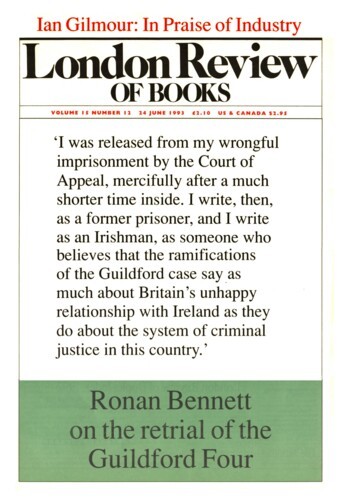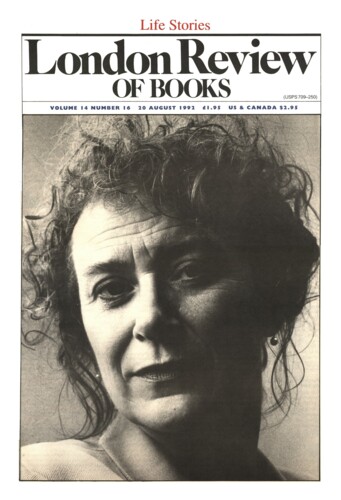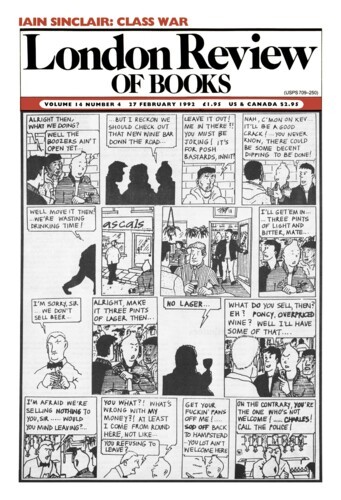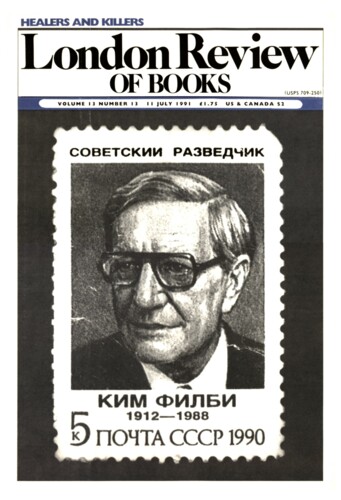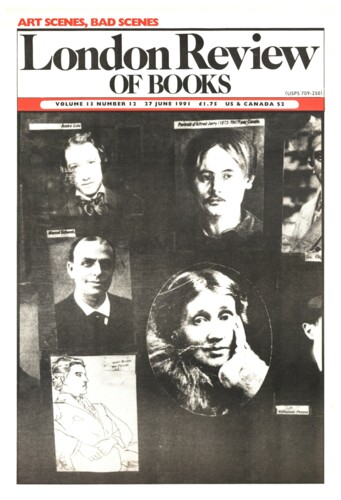Diary: In Aswan
Stephen Sackur, 24 June 1993
The Rahman mosque in Aswan is closed to the public. A policeman stands guard on the narrow balcony at the top of the dun-coloured minaret. He sways slowly in the heat. Occasionally he takes a turn around the narrow tower to stretch his legs. Mostly he stays in a thin column of shadow, staring across the rooftops of a town he doesn’t know. A local lawyer tells me that armed guards like this one urinate from the minaret onto the mosque below. ‘They do it to provoke us. They have no respect for the people of Aswan and no respect for God.’
